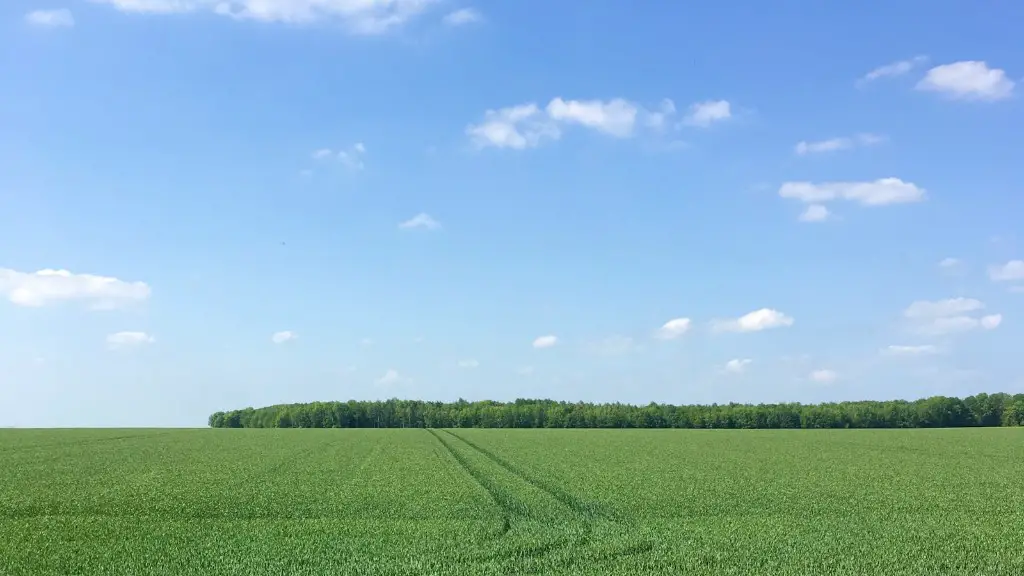Agriculture education is essential for all farmers, as it teaches them about the production, cultivation, and processing of food and feed. In order to ensure success in agriculture, there are three components of agriculture education – knowledge, practical skills, and moral character.
Knowledge-based Components
Knowledge-based components of agriculture education focus on providing information and understanding of the science behind food production. This may include topics such as animal husbandry, crop science, business management, marketing, soil and crop nutrition, and more. This component also looks at ways to maximize the efficiency of farm operations, as well as how to use renewable resources in an environmentally friendly and sustainable way. In addition, understanding the fundamentals of food safety, pest management, and water conservation are all important aspects of knowledge-based component.
Written and visual resources are important in providing knowledge-based components of agriculture education. Books, magazine articles, and educational videos are all examples of resources that can be used for this component. In addition, the classroom setting is another important environment for learners to gain knowledge about agriculture and its many related topics.
Practical Skills-based Components
Practical skills-based components of agriculture education are also important, as they serve to teach the actual skills needed to work in the industry. These practical elements may include animal care, greenhouse management, and tractor operation. The use of hands-on activities to demonstrate the proper use of a variety of tools, and safety protocols are also crucial in this component. Furthermore, the ability to develop problem-solving and troubleshooting skills are essential in ensuring agricultural operations are successful.
Field trips and internships are great resources for students to practice and refine practical skills-based components of agriculture education. In addition, interactive educational games, simulations, and virtual experiences can provide students with the opportunity to test and improve their skills.
Moral Character-Based Components
Moral character-based components of agriculture education focuses on values, ethics, and responsibilities to society. This includes teaching students the importance of understanding their social and environmental responsibilities. Additionally, moral character-based components provides students with the opportunity to reflect and explore their own personal values and beliefs, and how this impacts the world and their duty as future agricultural leaders.
Service-learning opportunities, internships, and community projects are all ways to help foster the development of moral character-based components of agriculture education. Role-play and different discussions can also be useful in terms of illustrating the importance of social responsibility.
Sustainable Agriculture
Sustainability is an important aspect in agriculture, as sustainable farming practices promote healthy soils, crops, and resources. Sustainable agriculture is an approach that uses natural cycles, technologies, and helps maintain farm lands, habitats, and environments. This makes it an important aspect to consider when teaching agriculture education.
In terms of knowledge-based components, sustainable agriculture can be taught by introducing topics such as integrated pest management, precision agriculture, micro-irrigation systems, cover crops, and water conservation. Additionally, practical skills-based components can include activities such as conservation tillage, crop rotation, and mulching. As for moral character-based components, students can be taught how to be more environmentally conscious, and gain skills such as stewardship, awareness, and resilience.
Organic Farming
Organic farming is a system of farming that uses natural methods such as composting, crop rotation, and pest control to promote soil fertility, and maintain the productivity of fruit and vegetable crops. This type of agriculture approach has been growing in popularity, as it avoids the negative impacts of intensive farm inputs, and its benefits to human health and the environment.
Knowledge-based components of organic farming may include topics such as soil building and fertility, crop rotation, pest management, and integrated pest management. As for practical skills-based components, activities like composting, soil sampling, and set-down harvesting are important to highlight. Last but not least, moral character-based components may include such topics as respecting the land, understanding the environment, and avoiding forms of pollution.
Market-oriented Agriculture
Market-oriented agriculture focuses on developing higher-value products for domestic and international markets. This type of farming requires growers to have a basic understanding of market trends, and ways to differentiate their products from others. This ensures that the product is viable in the market to maximize its sales potential.
In knowledge-based components, market-oriented agriculture involves understanding the market, marketing strategy, and product differentiation. As for practical skills-based components, it is important for the students to develop their creativity and ingenuity in growing and displaying their products. Lastly, the moral character-based components teaches the importance of responsible production and fair business practices.
Agroecology
Agroecology is an agricultural system that works with and incorporates ecosystems within the agricultural production systems. This could include intercropping systems, mixed farming systems, and agroforestry, among other systems. This type of farming is known to be beneficial, as it is more cost-efficient, reduces external inputs and agrochemical use, and increases the productivity of crops over time.
In terms of knowledge-based components, agroecology covers topics such as sustainable food production, pest management, soil health, and biodiversity conservation. As for practical skills-based components, activities can include crop selection, intercropping, integrated pest management, and composting. Lastly, the moral character-based components can include the importance of being aware of the environment, stewardship, and the ethical practice of agriculture.



